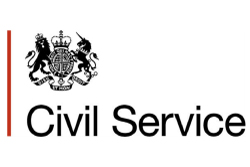Civil Service Numerical Test (CSNT)
Page contents:
Jump to:About Civil Service Numerical Reasoning Tests
The Civil Service looks for employees with a high ability to handle various situations in a specific manner. Applicants have to sit a numerical reasoning test before being offered a position.

The Civil Service use the following tests in their selection process:
- Numerical reasoning test
- Verbal reasoning test
- Behavioural questionnaire
- Situational judgement test
- E-tray
| Assessment section | Recommended Practice Pack |
|---|---|
Civil Service Numerical test | Numerical Test Pack
|
Civil Service Situational Judgement test | Situational Judgement Test Pack
|
Civil Service Personality test | Personality Test Pack
|
The Civil Service use numerical reasoning tests as a fair and objective way to assess candidates. Numerical tests allow the Civil Service to judge a candidate's potential and ability to do a job without having to conduct thousands of interviews or read thousands of CVs.
Psychometric tests are much less bias and free from discrimination. They do not assess your qualifications or experience, but instead judge you on your performance and potential.
The Civil Service Numerical Test (CSNT) will judge you on your ability to perform calculations and evaluate numerical information to solve problems. You will be presented with various numerical data (in the form of graphs, tables, etc.) and be asked to select the correct answer out of some answer options.
There is no time limit and time taken will not be used to judge your performance.
This is a free practise test provided by the Civil Service - try it out for yourself... As you will see, it is a challenging test and so practise is highly advised.
Civil Service Application Process Stages
Stage 1
| Online Application | You will need to complete an online application form, in which you will need to detail your educational history and choose the positions you would like to apply to. |
|---|
Stage 2
| Online Situational Judgement Test and Behavioural Questionnaire | Shortly after submitting your application, you will automatically be invited to take a Situational Judgement test online under timed conditions. The test is quite short, and most candidates complete it under 30 minutes. The second test will be a behavioural questionnaire. You will have 5 days from submitting your application to complete these two tests. |
|---|
Stage 3
| Online E-tray test | If you have met the required criteria to pass the situational judgement test and behavioural questionnaire in the previous stage, you will be asked to take part in an e-tray test. These tests are simulations of an e-mail inbox, and all the material will be relevant to the Civil Service. This exercise will last for 80 minutes. You will get the opportunity to practice a few questions beforehand, and the Civil Service have some useful information online. |
|---|
Stage 4
| Video Interview | The video interview is described as a one-way recording. Typically, in a video interview you will be given a set of questions to respond to. You will then use the software provided to record your responses to these questions. You will be asked 9 questions and the interview should take about 30 minutes to complete. Use the freedom here to plan your responses to the questions well, even if that means redoing the recording. You will often get the opportunity to view and check the recording before submitting it. Ensure that your answers are relevant to the questions asked. The Civil Service state that you can record your responses from your mobile phone, tablet or any PC with a webcam. |
|---|
Stage 5
| Verbal and numerical reasoning tests | After having successfully passed the situational judgement test, behavioural questionnaire and the video interview, if you have applied for a Finance or Commercial role, you also be asked to complete a Numerical test after this stage. The numerical reasoning tests is provided by Cubiks and will assess your ability to reason logically, and analyse numerical data, which are very important skills to have for any financial position. You may also be invited to take a verbal reasoning test online, the CSVT. This will not be under timed conditions although most candidates answer all questions within 15 and 45 minutes. |
|---|
Stage 6
| Assessment Centre | Once you've managed to win over the Civil Service with your video interview responses, your scores in the SJT, behavioural questionnaire (and the numerical reasoning tests), the final stage will require you to attend an assessment centre and take part in an interview, a group, an analysis and a leadership exercise. During the group exercise, the assessors will be evaluating how well you form relationships with other, new people, and how you contribute to the team. A detailed guide has been produced by the Civil Service, which can be viewed, downloaded and printed. |
|---|
Join those now working at top companies
Don't settle for 'try again next year'. Let us help you pass employer tests first time.
Try now for free
The Civil Service Numerical Reasoning Test Questions
The Civil Service use adaptive tests. This means that the next questions you face will depend on your current performance. If you get a question wrong, the next question will be easier - vice versa.
This means that every test is unique and there's no fixed set of questions that you will face.
What you should know before taking your CSNT
Once you have been invited to take the Civil Service Numerical Test you will have a deadline to complete the test by. It's important that you finish the test before this deadline as otherwise your application will not be submitted.
You may use a calculator for this test, so be sure to have one with you. Despite there being no time limits, we would recommend that you try and finish the test in one sitting. Removing distractions and focusing solely on the test will ensure you are better focused and less prone to make errors.
Make sure you read all the instructions that are given to you. For example, you cannot go back to previous questions once you have moved onto the next. Knowing information like this will be vital to your test performance.
Answered questions
Are these tests suitable for the Civil Service?
Yes. the Civil Service use reasoning tests to assess applicants in the recruitment process. The practice tests we provide have been designed to mimic the style to create an environment similar to the real assessment. This provides you with confidence that the questions you practice with us now are an accurate reflection of the real assessment.
How difficult are your tests?
The same difficulty as real tests. Generally real employer selection tests don't differ that much in terms of difficulty which is why they compare your score against norm groups. Our practice tests are pitched roughly at graduate level, but this means they are actually suitable for preparing for all levels of job: entry; apprentice; graduate; senior; director.
Are they compatible with my Mac / Tablet / Phone?
Yes, and PC, and Linux and smartphone and Android and...everything. Our practice tests will run on all systems and they are responsive so they will work well on tablets and smartphones too!
How many times can I take the tests?
Unlimited. You can take our practice tests as many times as you like; there is no limit. But to be honest, after taking the same test a few times you start to remember the answers, so that’s why we have lots of tests.
